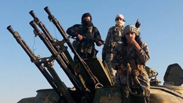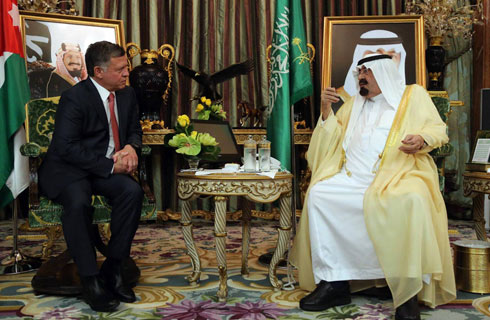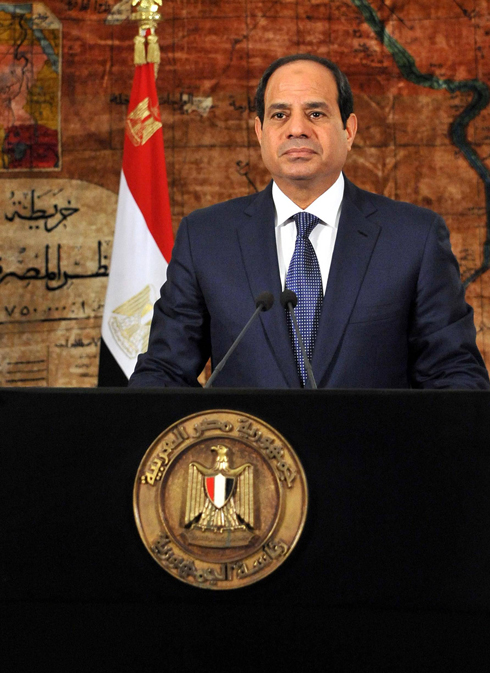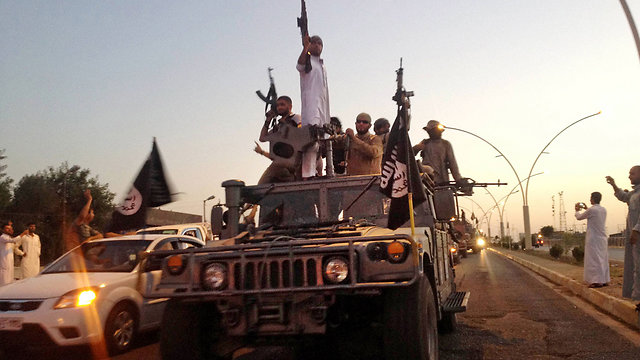
Strong yet hesitant coalition facing determined enemy
Analysis: Why are the Middle Eastern forces, whose integrity is being threatened by ISIS, afraid to attack the murderous organization? What will the offensive look like in the end and what role will Israel play in it?
The coalition is facing a determined enemy, filled with Islamic, jihadist and messianic enthusiasm. As time goes by, more and more volunteers join the "Islamic caliphate," in which the power and evil attract fanatic Muslims around the world. According to estimates, the organization has 20,000 to 30,000 murderous fighters in black uniforms.
According to Syrian opposition reports, ISIS is already preparing to attack the coalition and is transferring equipment and fighters from its headquarters to hiding places. The organization is expected to make maximum use of Christian and Muslim places of worship and sites which will serve as a "human shield": Hospitals, schools, kindergartens, etc.
ISIS is facing a large and strong coalition, yet hesitant and filled with reservations. Why are the forces in the Middle East, whose integrity is being threatened by ISIS, afraid to attack the murderous organization? What will the offensive look like in the end?
Iraq is in, Syria not yet
The coalition's participants have yet to be tasked with their missions, and its members already appear deterred by the thought of attacking. What the states which arrived at the Paris conference share is support in principle for the idea of destroying ISIS. The main problem stems from the fact that the organization dominates areas in two countries in which the situation is completely different.
Some of the coalition's leaders have already expressed their consent to attack ISIS in Iraq. Britain, France and Australia have agreed to join the airstrikes which the Americans have already begun in northern Iraq. Germany has agreed to arm the Kurdish Pêşmerge fighters in Iraq. The Iraqi army appears determined to regain its control of the western part of the country. The change of government and new Prime Minister Haider al-Abadi point to a more stable coalition in the future.
But not a single country apart from the United States has agreed about the offensive in northern Syria.
The situation in the Syrian arena is much more complex. As far as the Americans are concerned, Syrian President Bashar Assad is a war criminal and cooperating with him or with his ally Iran is out of the question.
The European countries are afraid of getting entangled in Syria, particularly for fear of a conflict with Russia, the Assad regime's main supporter. Russia suspects, and with a great amount of justice, that an attack on ISIS in Syria will not be the end of it and that, under American pressure, the coalition forces may move on to attack the Syrian regime as well.
Keeping Iran away from the coalition only strengthens Russia's suspicions on this issue. The tensions between the European countries and Russia are already very high over the Ukrainian issue, and they are not interested in extending the conflict to another arena and risking a military conflict with Russia.
Saudi Arabia behind the scenes
There is no doubt that the Americans have no intention of giving the Syrian regime a "free gift" and will do anything to prevent Assad from taking over the territories they are planning to attack. But who will fill the void which will be created after ISIS is destroyed? The leader of the Sunni Arab world, Saudi Arabia, is likely behind the American considerations.

Keeping Iran away from the coalition has to do with the Saudi pressure not to include the Shiite element in Syria. According to Arab sources, the kingdom has even offered to train a large force of "moderate" rebels on its territory before they enter northern Syria after the American bombing. Thereby, Saudi Arabia will move towards its goal to turn Syria into a state controlled by the Sunni majority and its ally instead of Iran.
Battle against Muslim Brotherhood
Saudi Arabia is behind a significant political process the region is going through ahead of the attack on ISIS. On Saturday, Qatar abruptly expelled senior members of the Muslim Brotherhood movement at Egypt's demand under President Abdel Fattah al-Sisi. But this demand was made long ago, and the current timing has to do with US and Saudi efforts to "clear" the area of Islamic organizations ahead of the strike.
The expulsion of the Muslim Brotherhood leaders took place immediately, and not incidentally, after the embarrassing incident which revealed the ransom Qatar had paid the Jabhat al-Nusra organization in Syria in exchange for releasing the UN peacekeepers held hostage in Fiji. This exposed the emirate's support for the most radical organization affiliated with al-Qaeda.
Interestingly, the upcoming attack has put Tunisia, the leading Maghreb state in the number of volunteers fighting alongside ISIS, under pressure as well. In order to prove that Tunisia is not on the wrong side, its Interior Minister Lotfi Bin Jeddo rushed to declare Sunday that his country is fighting terror and has recently prevented as many as 9,000 Tunisian young men and women from joining Islamic movements fighting in Syria and Iraq and threatened to revoke their passports. This amazing figure revealed just how deep the Tunisian problem is.
Turkey is not joining coalition
Another country embarrassed by the anti-terror coalition is Turkey, which has become a shelter for the Muslim Brotherhood. It sponsors different Islamic opposition groups in Syria and also provided them with transit areas.
Turkey should have been America's natural ally in the current crisis. It borders on Syria and on Iraq and is the closest country to the areas controlled by ISIS. Turkey is also a member of the NATO alliance, and an important US Air Force base is located within the country.
Officially, Turkey has expressed its concern for 46 Turkish civilians kidnapped by ISIS, but the fact that many Turks have joined ISIS embarrasses the regime in Ankara, which is not interested in exposing the extent of this phenomenon.

Turkey's main fear is that the West's arming of the Kurds against ISIS will enable them to establish an independent entity in northern Iraq and in Syria. In the next stage, the Kurds may threaten the integrity of Turkey, in which they make up about 20% of the population.
So who will do the actual fighting?
While Western forces strike in Iraq, the ground forces will mainly include local populations: In Iraq, the Iraqi army and local Sunni tribes, and in Syria, moderate opposition forces.
It looks like the Americans will be forced to strike on their own in Syria, as they are currently doing in Iraq. It's hard to assume that the Syrian army will follow through on its threats to attack planes entering Syria's airspace without coordination. Such an incident will only serve as an excuse to expand the offensive and target the Syrian regime's army as well.
The Arab support will likely be expressed in sending weapons and funding the local forces.
No active Israeli involvement
Egyptian President al-Sisi has stated that the war on terror must be an "all-out war." This means that Egypt's part in the battle will be reduced to fighting the terror organizations in Sinai and on the border with Libya.
With its current economic situation, Egypt cannot afford to send its forces to fight in a different country. In addition, the Egyptian army is too busy stabilizing Egypt's internal security. This stability is essential for restoring tourism and advancing the Suez Canal expansion project.

The Jordanian army is too small to become a significant part of the coalition, and its role will likely be mainly defensive – curbing ISIS activists fleeing southward to the kingdom's border during the strikes.
As far as Israel is concerned, its involvement will likely be limited to a quiet intelligence contribution, as an active Israeli involvement may keep some countries away or break up the Arab coalition, which includes countries that are in a state of war with the Jewish state (Lebanon and Iraq, for example).
ISIS is expected to withdraw westward and then southward, from Iraq to Syria and from headquarters in northern Syria southward. Ironically, ISIS's only chance of surviving stems from the Iranian-Russian axis' objection to an offensive in Syria.
Dr. Yaron Friedman, Ynet's commentator on the Arab world, is a graduate of the Sorbonne. He teaches Arabic and lectures about Islam at the Technion, at Beit Hagefen and at the Galilee Academic College. His book, "The Nusayri Alawis: An Introduction to the Religion, History and Identity of the Leading Minority in Syria," was published in 2010 by Brill-Leiden.











